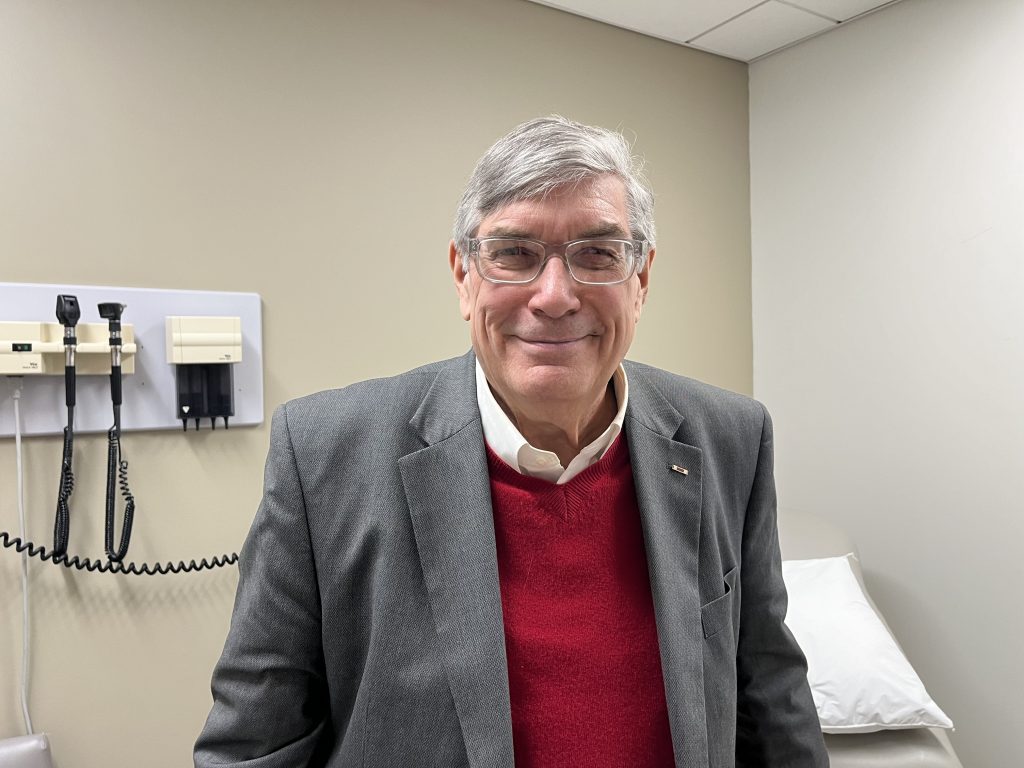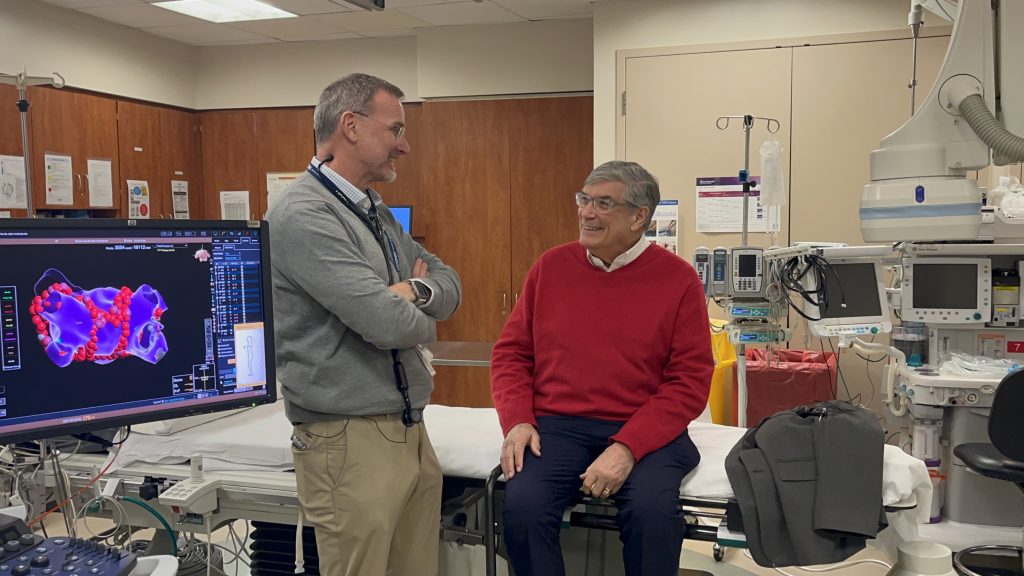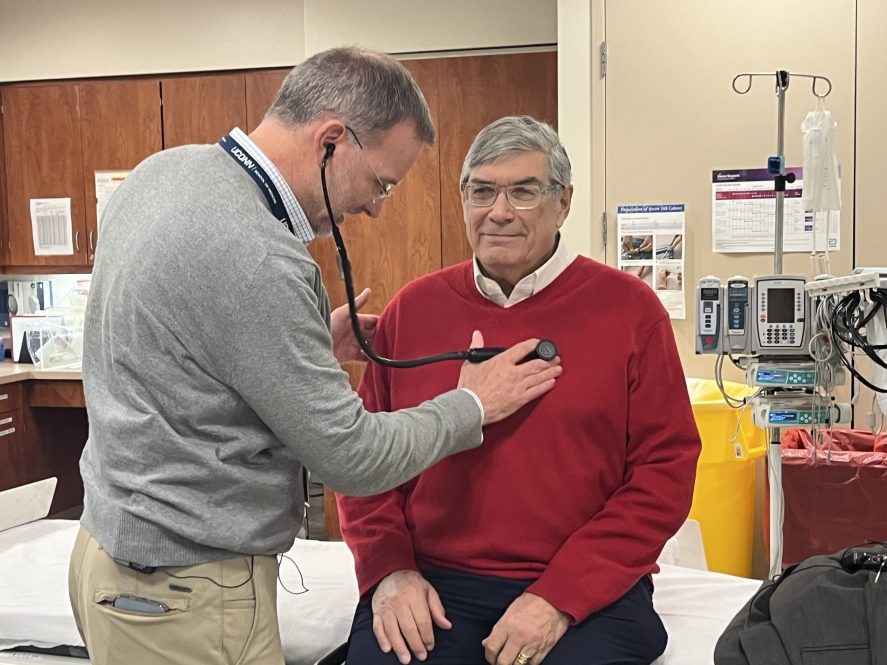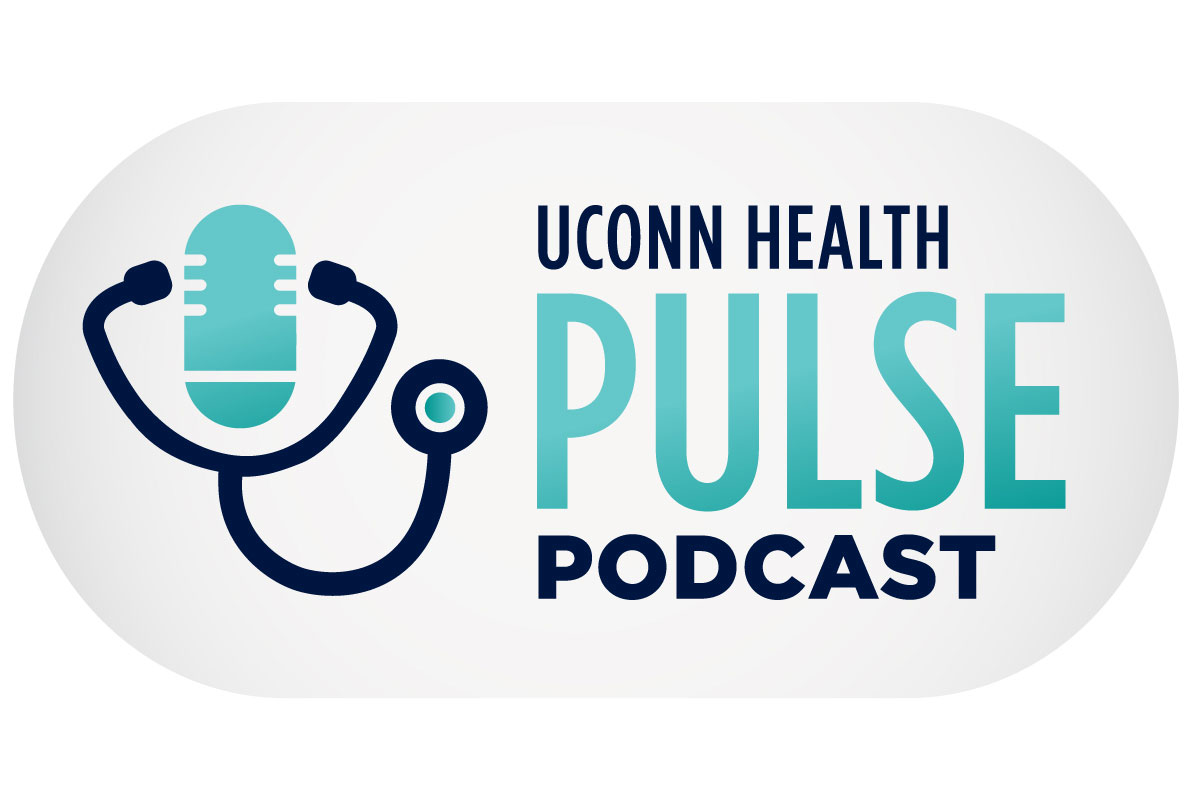Peter A. DeLisle, Ph.D., 74, of Torrington, is a busy, award-winning educator and businessman who has always kept his heart health top of mind.
“My whole family has experienced cardiovascular diseases throughout the last 80 to 100 years,” he shares. “Heart attack and stroke has always been a very real-deal risk for me given my family history.”
The most striking family history on his father’s side was his grandfather losing his ability to speak after suffering a stroke, and his own father undergoing two separate and then-experimental open-heart bypass surgeries.

Nine years ago his own heart health story began.
“I experienced my first episode of atrial fibrillation. At the Emergency Department my heart rate was 200 and greater,” recalls DeLisle about his first heart health scare. “Since then I have lived on with medication.”
But over the years his atrial fibrillation episodes increased in frequency. While not debilitating, they were worsening in severity.
“My cardio monitor EKG readings were increasingly showing me that my atrial fibrillation was becoming more and more frequent, and troublesome.”
DeLisle also noticed another significant change a year and a half ago.
He started having greater and chronic symptoms of atrial fibrillation. Not only was his heart going into a dangerous and rapid arrythmia which felt like his heart was racing at times, but he could no longer walk 100 feet without stopping from exhaustion and lightheadedness.
“My body began feeling out of gas, with an overall lethargy, and I felt really like a zombie,” he recalls.
He and his cardiologist knew it was time to do more than just medication management for his atrial fibrillation.
Dr. Christopher Pickett, co-director of UConn Health’s Heart Rhythm Program and Interim Director of the Calhoun Cardiology Center, recommended he undergo an ablation procedure to minimally invasively map his heart tissue with advanced imaging to identify where exactly his arrythmia was stemming from, and to then ablate or zap the pinpointed heart tissue area to stop it from ever causing future heart rhythm issues.
In September 2023 DeLisle had a successful ablation procedure at the Calhoun Cardiology Center’s Electrophysiology Laboratory with Pickett.
“I felt instantly different, almost immediately!” exclaims DeLisle. “I feel really good and have not had a recurrence of my atrial fibrillation symptoms.”
DeLisle is now looking forward to his next big milestone.

“I will be 75 this year. Dr. Pickett changed my life. I am so much better and now back to being who I am. I get to even travel now without fear of a heart episode.”
Also, he cannot say enough about his alma mater UConn, the cardiac care, and his cardiologist/electrophysiologist.
“Way to go Huskies,” says DeLisle, a distinguished military graduate of the University of Connecticut in 1971. He served in the United States Army as a captain of field artillery; fifteen years as a corporate executive and twenty-five as a member of faculty at three colleges.
“Dr. Pickett is an extraordinary practitioner, the best I could ever have – but there is something more and very different about him. He is a true healer!”
He concluded: “I can’t thank Dr. Pickett enough, along with my family for their terrific support.”
DeLisle has been married to fellow and retired educator Janice Braem DeLisle for over 50 years, and who he shares twin daughters, Amy and Meg.
This February Heart Month, Pickett and UConn Health’s Calhoun Cardiology Center cannot stress enough to everyone, whether you are younger or older, the importance of an annual primary care checkup.
“Instead of beating like a clock, your primary care doctor may notice at some point a difference in your heartbeat,” says Pickett. “Knowing you may have an irregular heartbeat is critical to managing your cardiovascular health.”
For example, atrial fibrillation can cause an individual to have either no symptoms or can range to be highly symptomatic with rapid heartbeat, shortness of breath, or lack of energy,
“Thankfully, for many years Pete was able to successfully manage the symptoms of his atrial fibrillation and use a blood thinner to reduce his risk of developing a blood clot in his heart that could potentially travel to his brain and cause a stroke,” says Pickett.
Pickett adds: “But when Pete’s AFib symptoms severely worsened, we knew the next step was an invasive procedure called an ablation to help quiet down and eliminate the electrical impulses causing his heart’s arrhythmia.”
Pickett stresses that even with ablation, one of the most incredibly sophisticated heart procedures, any intervention for atrial fibrillation must be coupled with a patient following the fundamentals of a heart healthy lifestyle: a healthy daily diet including minimal alcohol and salt intake, daily exercise, and maintaining a healthy weight, as well as managing other conditions such as high blood pressure and sleep apnea.


